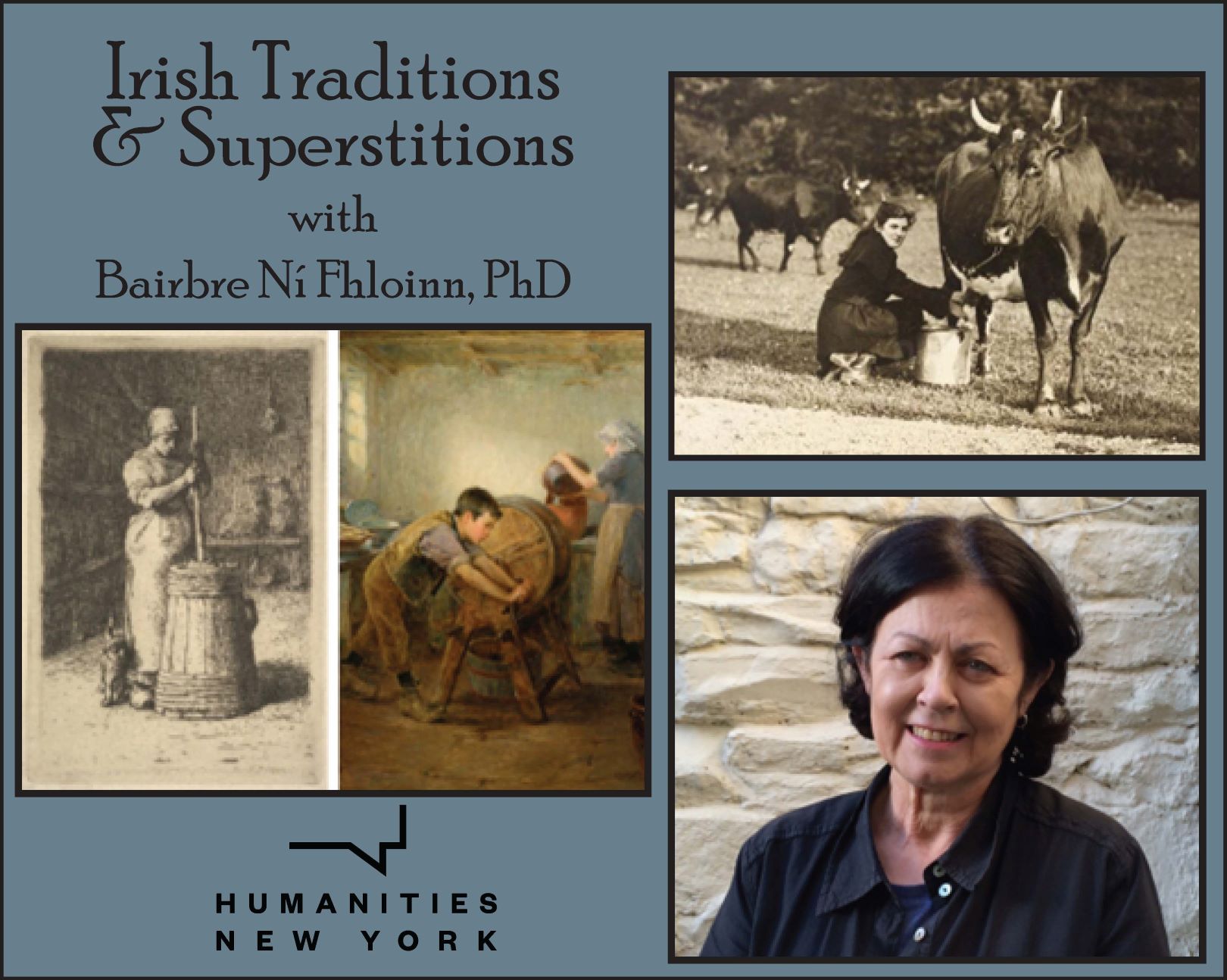In an Ireland where life was often difficult, it seemed sensible to hold both Christian and folk beliefs at the same time to protect one's luck. With land and resources so scarce, there was great paranoia about the potential of others wanting to do evil and gain from your misfortune. Pisoegs or pishogues are those odd baseless superstitions that have a long tradition in Ireland, combined with a strong rural belief in faeries and their appeasement for fear of accruing bad luck. In the days before scientific understanding and modern medicine, bad luck was often seen as being something you obtained by upsetting the wrong people or supernatural beings. If your crop failed, your butter did not churn or your health or the health of your livestock failed, it may have been a punishment obtained by you somehow. In this context, the enactment of piseogs were essentially a form of folk witchcraft, a form of malevolent magic to wish misfortune or death on someone. Professor Bairbre Ní Fhloinn will discuss Irish traditions, superstitions, and piseogs for Hallowe'en.
Bairbre Ní Fhloinn lectures in Irish Folklore and Ethnology in the UCD Delargy Centre for Irish Folklore and the National Folklore Collection. She was Head of Subject from 2013 to 2019 and is Director of the recently established MA in Irish Folklore and Ethnology, which she initiated. The subject of Irish Folklore and Ethnology forms part of the UCD School of Irish, Celtic Studies and Folklore. he has written widely on many aspects of Folklore and Ethnology, including a book-length study of the occupational lore of Irish fishermen, published by Comhairle Bhéaloideas Éireann/The Folklore of Ireland Council, in 2018 as part of its Folklore Studies series.
This program was funded in part by Humanities New York with support from the National Endowment for the Humanities.
